Have you ever wanted to play a game that’s essentially medieval Tinder, but you get to see the highs and (absolute trainwreck) lows of what comes after? Lakeburg Legacies describes itself as a social-focused village management sim, and while it certainly does what it sets out to do on the box, the game falls slightly short of delivering the freedom, heart and drama that could make it truly great.
On booting up Lakeburg Legacies, you’ll find yourself in the empty forests of Lakeburg, which has an empty lumberjack lodge. With the help of the local mystic, Tindra (a solid nod to the dating app), you’ll work to bring villagers to the town, build houses, produce more resources, and eventually establish a monarch. All the while, you’re tasked with finding each villager their perfect match, growing their families, and making sure your couples stay happy, housed, and alive. Early on, Lakeburg Legacies tells you that the gender of your matches has no bearing on whether they can marry or have kids, which is a nice touch (and introduced me to the new goal of a village made up of entirely queer women).
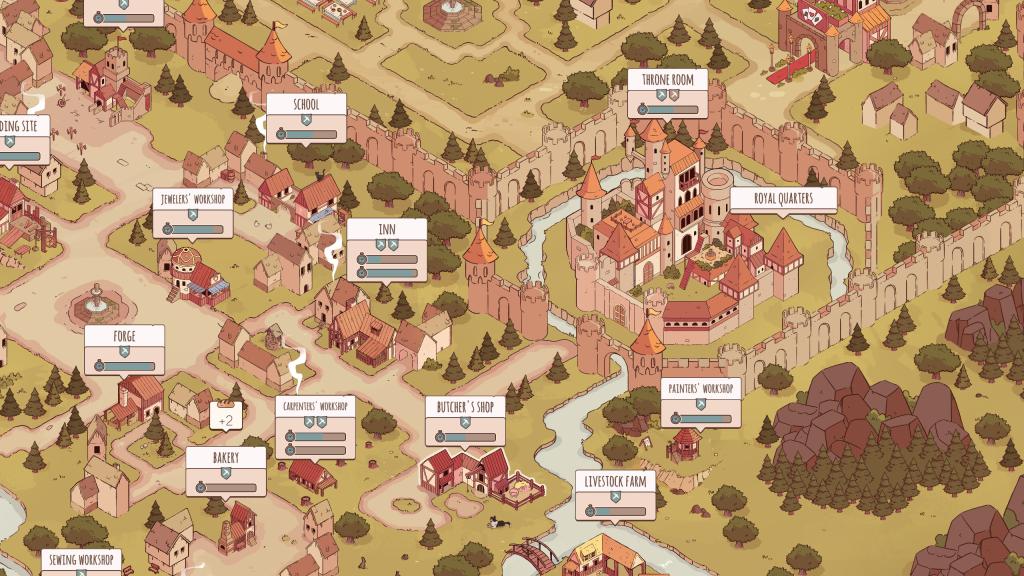
Before jumping into building your empire, you’re able to choose from a range of gameplay options. This allows you to select a social or resource-based focus and the ‘length’ of your playthrough. For a game that promises to let you witness the fruits of your matchmaking (or meddling) through long, prosperous lineages, having a 100-year max gameplay loop seems like an oversight – although based on developer updates from Ishtar Games, a test version of endless gameplay is live while the full version is finalised.
The fundamental idea of Lakeburg Legacies is a great one, given the often detached nature of the genre, so I was excited to experience the personal touch that comes with directly involving myself in the day-to-day love lives of my villagers. Unfortunately, matchmaking is not quite as involved as you’d hope; after swiping left and right to find each villager’s perfect match (based on shared likes and dislikes, as well as overall affinity based on other individual stats), you’re given a minigame of three questions where you must try to remember common traits to ensure smooth sailing. On the first try, this was great fun; not only do you get to match couples up, but you get to guide them through dating first! However, after spending 100 in-game years matchmaking, this gets repetitive.
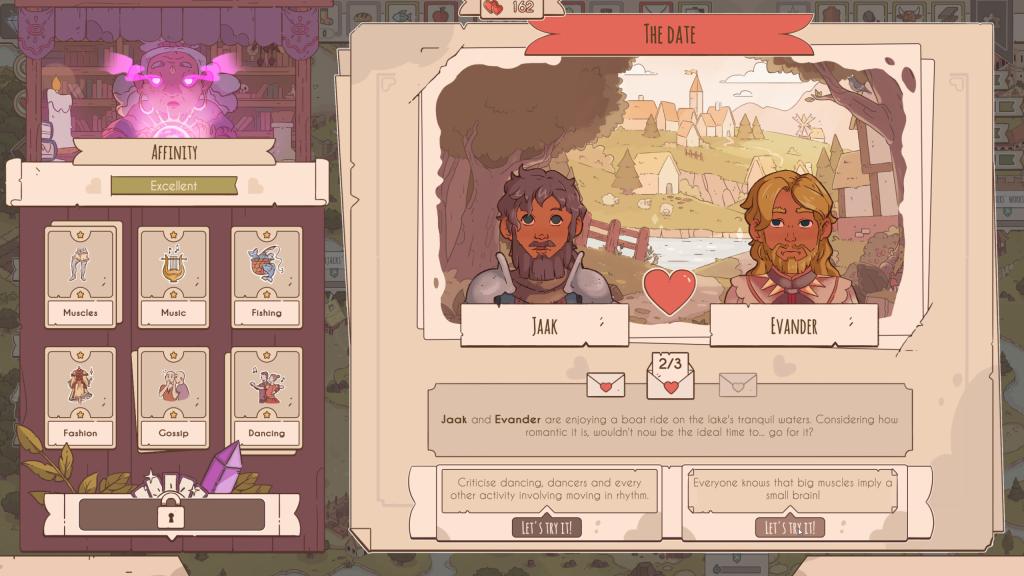
If the match succeeds, your villagers get married, move in together, and have children. The journal on your sidebar and viewable in each couple’s home allows you to keep track of how they’re going – is one of them spending too many big nights out at the inn? Did one compliment the other? It’s a nice touch that brings a more personal touch through the minutiae of each couple’s life – and while it can get repetitive, these little updates do prove to have a purpose, as consistently negative updates could point to a sinking ship that needs either saving through further meddling, or abandonment if you’d rather break your happy couple up and try again.
Blink and you’ll miss it
While cheating, random trigger events, and break-ups are present in Lakeburg Legacies, they don’t hold nearly the gravity that you might expect in a game where the social aspect is a key focus. Married couples with wandering eyes split, forcing one member to move out, but beyond potentially ruining the mood of shared workplaces, there isn’t much song and dance about it otherwise. The recently-single villagers are immediately ready to match up again, which, funnily enough, is also the case for recently widowed villagers. Townsfolk that develop secret relationships on the side do so almost entirely unobserved beyond the blink-and-you’ll-miss-it journal entries and brief encounters throughout the village.
Adultery isn’t the only thing to fly past without drawing much attention to itself in Lakeburg Legacies, though, with children feeling like an afterthought at some points. Orphaned children – in my playthroughs, often due to their parents toiling in jobs they were both awful at and hated until they just died – become homeless with minimal fanfare, and underage villagers can’t live alone, be adopted by another couple, nor does there seem to be an orphanage building on checking available build options. This leaves you just winging it and hoping your orphan survives the streets until they come of age. Newly-turned adults are also unceremoniously booted from home the moment they turn 18 without much fanfare, either.
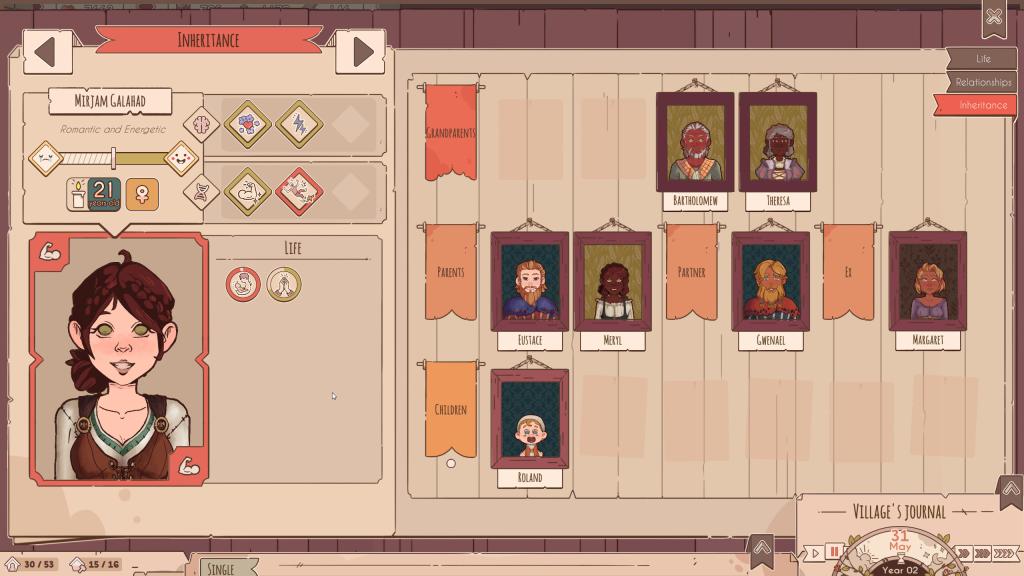
Kids also get the short end of the stick when it comes to relationships. On checking younger villager character sheets, many seemed to have absolutely no relationship with any of their family members – unless they met in the street, of course.
Children and how they’re handled are one of a few oversights in Lakeburg Legacies, alongside the disappearing tutorials, which can’t be referred back to once exited out of, and the confusing travelling merchant mechanic, which seemed to have no clear way to utilise (the only obviously clickable button on this menu early game only let me Barter, which sent the merchant away for months on end with no sale) – perhaps covered in an earlier tutorial I breezed past.
This isn’t to say Lakeburg Legacies wasn’t a lot of fun to play, though. The storybook art style and jaunty medieval tunes set the scene for a good old adventure through Lakeburg’s growth, and the resource management is enjoyable and introduced at a manageable pace, which was a welcome touch for someone cruising for a cozy game. The randomised villagers are diverse in appearance and personalities, making assigning partners and roles within the town an interesting task.
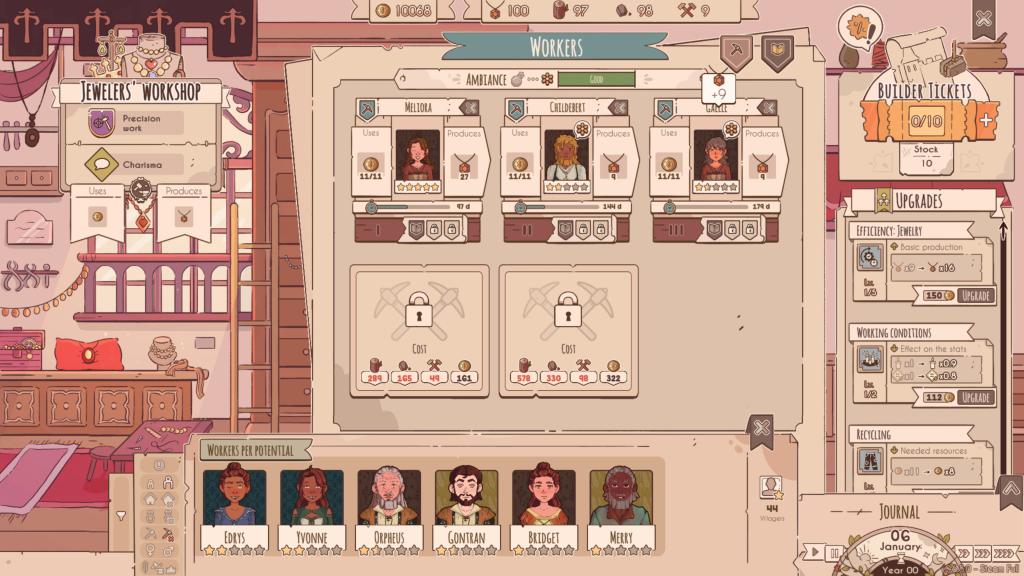
The variety of buildings and individual job aspirations also add to the feeling of a living village inhabited by individuals instead of buildings piloted by clumps of pixels. While a bit simple in their impact, the random events that crop up are a fun addition to break up any monotony in watching your world go by, too.
While Lakeburg Legacies provides the chaotic fun of meddling in the business of others and watching how messy (or wholesome) it can get, alongside enjoyable village management sim gameplay, it feels like perhaps in trying to meld the two together, the heart of the game got lost along the way. Both sides of the game are good, yes, but are they amazing? Not quite. I’ll be swiping right on Lakeburg Legacies due to the unique take on the genre, fun art style and great sound direction, but the feeling that it’s just missing a bit more depth and heart means my hookup with this game is probably more of a casual, no strings attached affair for now.
Review conducted on a PC. Lakeburg Legacies was developed by Ishtar Games and is out now.
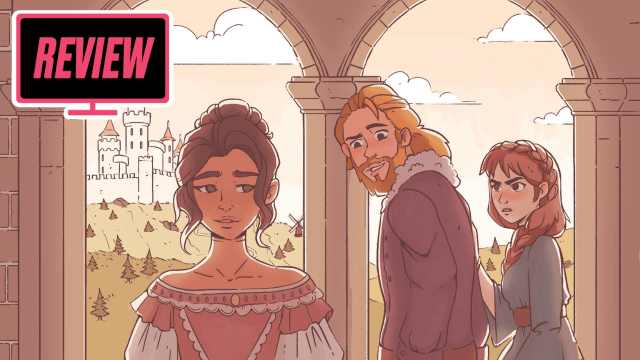
Leave a Reply